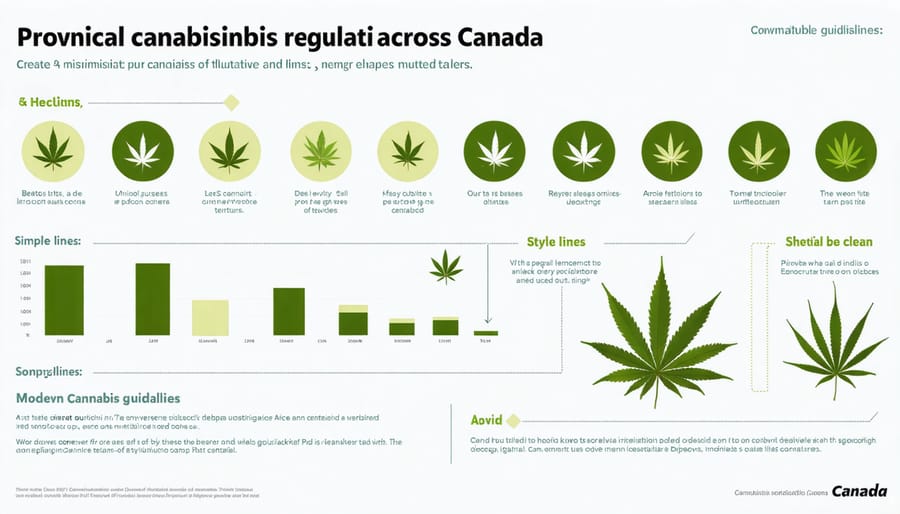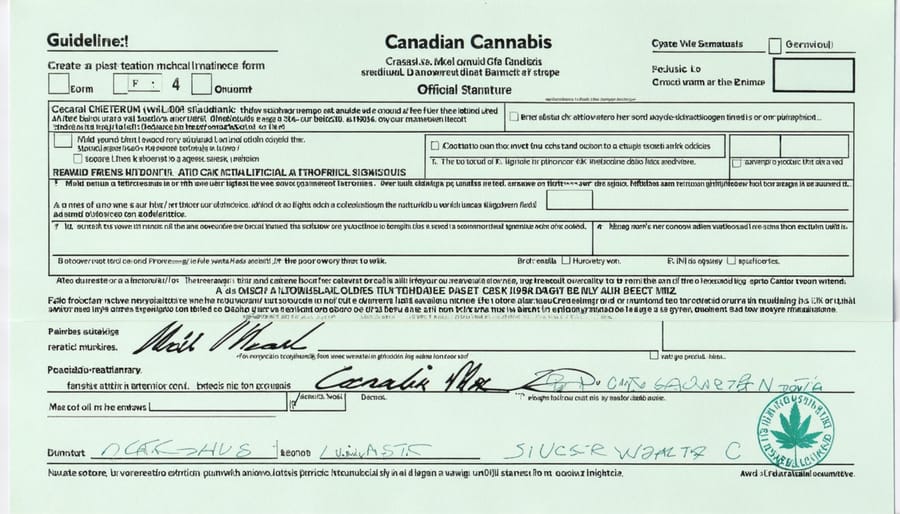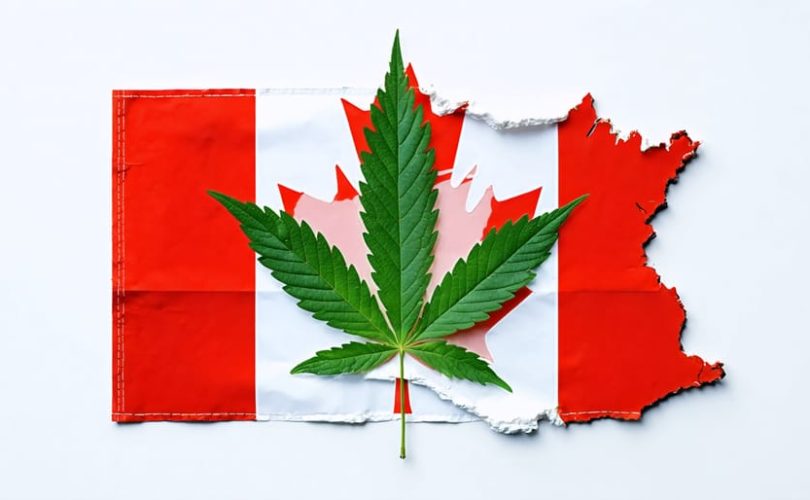As international medical graduates in Canada navigate the evolving landscape of medical cannabis, understanding its role in healthcare delivery has become crucial for professional success. With cannabis legalization transforming patient care protocols and Check Delta 9 gummies on budpop becoming increasingly prevalent in therapeutic contexts, physicians must master both clinical and regulatory frameworks to provide optimal care.
The intersection of medical cannabis and healthcare practice presents unique challenges and opportunities for medical professionals entering the Canadian healthcare system. From prescribing guidelines to patient education requirements, cannabis competency has emerged as an essential skill set for physicians practicing in Canada. Recent statistics indicate that over 300,000 Canadian patients now rely on medical cannabis treatments, making it imperative for healthcare providers to develop expertise in this rapidly evolving field.
This comprehensive guide explores the essential knowledge, legal requirements, and clinical protocols that international medical practitioners need to navigate cannabis-related healthcare in Canada effectively, ensuring both regulatory compliance and excellence in patient care.
Legal Framework for Medical Cannabis in Canada
Federal Cannabis Regulations
Medical practitioners in Canada must navigate strict federal regulations regarding cannabis within the Canadian healthcare system. The Cannabis Act and its regulations establish clear guidelines for healthcare providers who authorize medical cannabis. Under federal law, physicians and nurse practitioners can provide medical documentation for patients requiring cannabis treatment, but must maintain detailed records of these authorizations.
Healthcare professionals must complete mandatory training on cannabis medicine and stay current with Health Canada’s guidelines. The regulations require practitioners to document specific information, including the daily quantity of dried cannabis, the period of use, and the medical conditions being treated.
Important considerations include maintaining patient confidentiality, implementing proper screening protocols, and following up regularly with patients using medical cannabis. Practitioners must also be aware of contraindications and potential drug interactions. The College of Physicians and Surgeons in each province may have additional requirements that complement federal regulations.
Failure to comply with these regulations can result in professional consequences, making it essential for international medical graduates to thoroughly understand and follow these guidelines when practicing in Canada.
Provincial Variations
Provincial requirements regarding cannabis in medical practice vary significantly across Canada. In Ontario, medical professionals must complete additional cannabis-specific continuing education modules, while British Columbia emphasizes detailed documentation of cannabis-related patient consultations. Quebec maintains stricter oversight, requiring physicians to register with the Collège des médecins du Québec before authorizing medical cannabis.
Alberta and Saskatchewan have implemented comprehensive reporting systems for tracking cannabis prescriptions, similar to their opioid monitoring programs. Manitoba requires healthcare providers to undergo mandatory training on cannabis interaction with other medications. Atlantic provinces generally follow federal guidelines while maintaining their own reporting requirements.
Medical professionals in the territories face unique challenges due to remote locations and must often coordinate with provincial health authorities for cannabis-related matters. Each province also has distinct rules regarding telemedicine consultations for cannabis authorization, which is particularly relevant for physicians serving rural communities.
Understanding these provincial variations is crucial for international medical graduates, as licensing bodies may require additional provincial-specific cannabis education during the credential verification process.

Clinical Requirements for Cannabis Prescriptions

Documentation and Patient Assessment
In Canada, healthcare providers must maintain detailed documentation when recommending cannabis for medical purposes. This process begins with a comprehensive patient assessment that includes reviewing the patient’s complete medical history, current medications, and previous treatments for their condition. As an international medical graduate practicing in Canada, you’ll need to document these assessments using standardized forms that comply with provincial regulatory requirements.
The documentation process typically includes recording the specific medical condition for which cannabis is being recommended, potential contraindications, and any history of substance use. You must also document the discussion of potential risks and benefits with the patient, including possible side effects and interactions with other medications.
A treatment plan should be clearly outlined, specifying the recommended form of cannabis, dosage, frequency of use, and duration of treatment. Regular follow-up appointments must be scheduled and documented to monitor the patient’s response to treatment and any adverse effects.
Many clinics use electronic medical record (EMR) systems with built-in templates for cannabis prescriptions, making it easier to maintain consistent and compliant documentation. These systems often include automated reminders for follow-up appointments and prescription renewals.
It’s essential to document the patient’s informed consent and provide them with written instructions for safe use and storage of medical cannabis. You should also maintain records of any communication with licensed producers when helping patients access their prescribed cannabis.
Remember that proper documentation not only ensures regulatory compliance but also protects both you and your patients while facilitating continuity of care within the Canadian healthcare system.
Monitoring and Follow-up Protocols
When prescribing cannabis in Canadian medical practice, establishing robust monitoring and follow-up protocols is essential for ensuring patient safety and treatment effectiveness. Healthcare providers must schedule regular follow-up appointments, typically every 3-6 months, to assess treatment outcomes and adjust dosing as needed.
During follow-up visits, practitioners should document key indicators including symptom improvement, adverse effects, changes in quality of life, and any modifications to concurrent medications. It’s particularly important to monitor patients for signs of cannabis use disorder, cognitive impairment, or adverse psychological effects.
Standard monitoring protocols include:
– Regular assessment of treatment goals and outcomes
– Documentation of cannabis consumption patterns
– Review of potential drug interactions
– Evaluation of functional status
– Mental health screening
– Assessment of driving safety and occupational hazards
For international medical graduates practicing in Canada, it’s helpful to connect with experienced colleagues who can provide guidance on local best practices for cannabis monitoring. Many hospitals and clinics have established mentorship programs specifically designed to support IMGs in developing confidence with cannabis prescribing protocols.
Treatment adjustments should be made gradually, with careful consideration of patient feedback and documented responses. If adverse effects occur, practitioners should be prepared to modify dosing, change administration methods, or discontinue treatment if necessary.
Electronic medical records (EMRs) play a crucial role in tracking patient progress and maintaining comprehensive documentation. Many Canadian healthcare facilities provide specialized EMR templates for cannabis monitoring, which help ensure consistent documentation and compliance with regulatory requirements.
Remember to maintain open communication with patients and provide clear instructions about reporting any concerns between scheduled follow-up appointments.
Professional Development Requirements
Required Training Programs
Healthcare professionals seeking to work with cannabis in Canada must complete several mandatory medical training programs and certifications. The foundational requirement is the Cannabis Education Program (CEP), which covers essential topics including endocannabinoid system biology, therapeutic applications, and patient assessment protocols.
Practitioners must also complete the Canadian Cannabis Risk Management Course, which addresses legal compliance, patient safety, and proper documentation procedures. This certification typically requires 20-25 hours of study and includes practical case scenarios.
For physicians and nurse practitioners, additional specialized training through the Medical Cannabis Institute of Canada (MCIC) is mandatory. This comprehensive program includes modules on:
– Cannabis pharmacology and dosing
– Drug interactions and contraindications
– Patient screening and monitoring
– Clinical practice guidelines
– Documentation requirements
Healthcare professionals must also complete annual continuing education credits specific to cannabis medicine to maintain their certification. These updates ensure practitioners stay current with evolving research, regulatory changes, and best practices in cannabis-based treatments.
International medical graduates should note that these certifications are required in addition to their standard medical licensing requirements. Many institutions offer flexible online learning options, making it easier to complete these programs while pursuing other aspects of Canadian medical qualification.

Ongoing Education Requirements
Healthcare professionals working with cannabis in Canada must maintain current knowledge through ongoing education programs. The College of Family Physicians of Canada (CFPC) and provincial regulatory bodies regularly update their continuing medical education (CME) requirements to include cannabis-specific training.
Medical practitioners are expected to complete a minimum number of CME hours focused on cannabis medicine annually. These programs typically cover updates in cannabis research, therapeutic applications, drug interactions, and emerging clinical guidelines. Many of these courses are available online and can be completed at your own pace, making them accessible for busy healthcare professionals.
Key areas of focus include patient assessment for cannabis therapy, dosing protocols, risk management, and monitoring treatment outcomes. Healthcare providers are also required to stay informed about changes in cannabis regulations and prescription guidelines, which continue to evolve as new research emerges.
Several Canadian medical institutions offer specialized certificates in cannabis medicine, which can enhance your practice credentials. These programs often include practical components, such as case studies and supervised clinical experience, particularly valuable for international medical graduates adapting to Canadian cannabis protocols.
Professional organizations like the Canadian Consortium for the Investigation of Cannabinoids (CCIC) provide regular workshops and conferences, offering opportunities to network with experienced practitioners and learn from their expertise in cannabis medicine.
Practical Considerations for IMGs
Cultural Competency
Canada’s approach to medical cannabis reflects its progressive healthcare values and evidence-based medical practices. As an international medical graduate, understanding these cultural nuances is crucial for successful integration into the Canadian medical community.
Canadian healthcare professionals generally maintain an open but cautious attitude toward medical cannabis. While there’s broad acceptance of cannabis as a legitimate treatment option, there’s also a strong emphasis on responsible prescribing and evidence-based application. This balanced approach stems from Canada’s commitment to patient-centered care and harm reduction strategies.
Many Canadian patients are well-informed about medical cannabis and may actively seek information about it as a treatment option. As a healthcare provider, you’ll need to be prepared for open discussions about cannabis while maintaining professional boundaries and clinical objectivity.
Regional variations exist in attitudes toward medical cannabis across provinces and territories. Urban centers typically demonstrate greater acceptance, while some rural communities may hold more conservative views. Understanding these regional differences will help you provide culturally appropriate care.
The Indigenous perspective on cannabis, including its traditional medicinal uses, is also important to consider when treating First Nations, Inuit, and Métis patients. This cultural awareness demonstrates respect for Canada’s diverse patient population and helps build trust with communities you may serve.
Remember that staying current with evolving attitudes and engaging in ongoing professional development regarding medical cannabis is valued in Canadian medical practice.
Integration Strategies
For medical professionals looking to incorporate cannabis medicine into their practice, understanding the evolution of Canadian medical practice regarding cannabis is essential. Start by completing accredited cannabis education programs offered by recognized Canadian institutions. These programs provide foundational knowledge about cannabinoids, dosing guidelines, and patient assessment protocols.
Develop a systematic approach to patient screening and documentation. Create standardized intake forms that include comprehensive medical history, current medications, and specific cannabis-related health concerns. Establish clear communication channels with licensed cannabis producers and local pharmacies to ensure reliable access to medical cannabis products for your patients.
Consider joining professional networks and mentorship programs specializing in cannabis medicine. These connections can provide valuable guidance and support as you integrate cannabis treatments into your practice. Implement regular patient follow-up protocols to monitor treatment effectiveness and adjust care plans accordingly.
Keep detailed records of patient outcomes and maintain current knowledge of emerging research and regulatory updates. Start with a small patient cohort to build expertise gradually. Consider participating in cannabis-focused continuing medical education to stay informed about best practices and new developments in the field.
Remember to develop clear policies for patient education, including written materials about proper usage, potential interactions, and safety considerations. This structured approach helps ensure both regulatory compliance and optimal patient care.
As we’ve explored throughout this article, understanding cannabis regulations and protocols is crucial for IMGs pursuing medical careers in Canada. The integration of cannabis into Canadian healthcare presents both challenges and opportunities for international medical professionals. By staying informed about legal requirements, clinical guidelines, and patient care protocols, you can position yourself as a knowledgeable and competent practitioner in the Canadian medical system.
Remember that success in navigating cannabis-related aspects of Canadian medical practice requires ongoing education and professional development. Consider joining professional networks and seeking mentorship from experienced Canadian physicians who can provide guidance on cannabis-related patient care. Many IMG success stories demonstrate that with dedication and proper preparation, international medical graduates can effectively integrate cannabis-related knowledge into their Canadian medical practice.
Your next steps should include: staying updated on provincial cannabis regulations, participating in cannabis-specific medical education programs, connecting with IMG support networks, and seeking opportunities for clinical exposure to cannabis-related cases. Consider documenting your learning journey and maintaining a portfolio of relevant certifications and training.
The landscape of cannabis in Canadian healthcare continues to evolve, and as an IMG, your unique international perspective combined with thorough understanding of Canadian cannabis protocols can be a valuable asset to the medical community. Stay committed to your professional growth, and remember that resources and support are available to help you succeed in your Canadian medical career.







